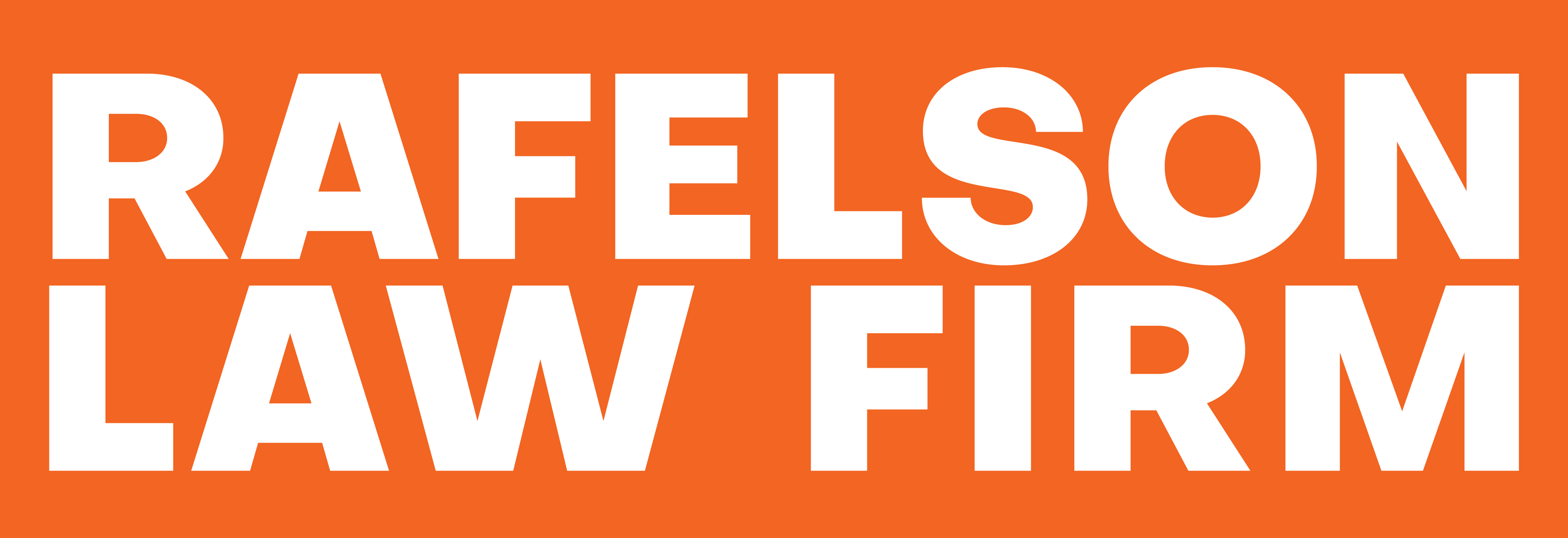A former state tax counsel for General Electric Co. is concerned that hundreds of thousands of Amazon third-party sellers appear to have had no legal representation in brokering the Multistate Tax Commission’s amnesty for online marketplace sellers with “inventory nexus.”
“Things that are questionable weren’t questioned in this process,” said Paul Rafelson, who has held similar positions at Wal-Mart Stores Inc. and Microsoft Corp., and is now an adjunct law professor at Pace University in New York.
The factual conclusions driving the initiative are chief among such questionable interpretations of the law, said Rafelson, who is working with a network of “Fulfillment by Amazon” (FBA) sellers to express small business concerns about the MTC’s voluntary disclosure initiative.
The MTC and participating states are working under the assumption that the obligation to collect sales and use tax is on out-of-state third-party sellers and not on Amazon.com, which as the marketplace provider controls nearly every aspect of these FBA transactions, Rafelson said.
“Do they understand an Amazon transaction the way that they should?” Rafelson asked.
Even as the amnesty is in full swing, the South Carolina Department of Revenue is taking the opposite position and placing the collection responsibility on the marketplace provider. The department in July issued a $12.5 million assessment to Amazon Services LLC — a subsidiary of Amazon.com operating the online giant’s marketplace platform for third-party sellers — for uncollected taxes on sales made by the FBA sellers during the first quarter of 2016.
The South Carolina DOR in its determination letter “did a really beautiful job” explaining how Amazon — not the FBA seller — is legally the retailer, Rafelson said. The determination letter also covers the issue of constructive ownership and concludes that Amazon — rather than the FBA seller — owns the inventory.
“South Carolina is like a hero to small business right now,” Rafelson said.
At the same time, Rafelson said South Carolina doesn’t go far enough. He discussed a relatively new Amazon practice called “commingling” inventory, a description of which appears later in this article.
Another state Rafelson singled out is Minnesota, which this year became the first state to enact a law requiring the marketplace provider to collect sales and use tax for its third-party sellers without physical presence in the state.
“Going forward, Minnesota has made it clear they’re going to go after Amazon, so why are they even participating in the MTC amnesty if this is about sales tax collection?” Rafelson asked. “If this is really about income tax collection, then there’s not the same urgency; the process can be slowed down for discussion.”
Which leads to another key point the network wants the MTC and participating states to understand.
According to Rafelson, the vast majority of the 800,000 affected U.S.-based Amazon FBA sellers are small businesses. They don’t know tax and they don’t have tax lawyers. They learned about the amnesty at the same time as the public — through press reports and web postings. And right now, they’re confused, panicked, and feeling pressured to participate.
“They’re all freaking out; they don’t know what to do,” Rafelson said. “It’s totally unfair to expect them to understand what they need to do, and what’s at stake, with just 60 days to comply.”
In a draft open letter, Rafelson is calling on the MTC to “stop the clock” on the amnesty to alleviate “the fear and paranoia that has swept the Marketplace Community,” and to extend the deadline to participate to February 2018. That way FBA sellers have time to understand the issues and get themselves represented.
Rafelson has posted the draft open letter on ecommerceChris, a website providing advice to FBA sellers that was started by a man who spent years evaluating seller account performance for Amazon’s merchant assessment teams. At the site, FBA sellers can anonymously contribute to a fund to retain top state tax lawyers to give the community a voice and to challenge state attempts to require out-of-state third-party sellers to collect sales and use tax and to pay income tax.
Rafelson did not provide the names of additional websites in the network or information about the number of FBA sellers contributing to the fund.
Quick Takes
“Yes, lots of small sellers should be freaking out — Amazon is moving their inventory around inside the Amazon fulfillment centers, triggering the sales tax nexus that creates liabilities that the sellers are not addressing,” said James Thomson, the former business head of Amazon’s platform for recruiting third-party sellers who worked directly with the MTC to originate the amnesty.
Thomson, who co-founded the PROSPER Show — an educational forum for FBA sellers — is upfront about the fact that he’s not a state tax lawyer.
“I’m not a sales tax expert, just the guy trying to get the word out to sellers to pay attention and use this as an opportunity to address unpaid sales tax liabilities that they do have,” Thomson said.
Amazon tells sellers that all sales tax responsibilities are exclusively the responsibilities of sellers, Thomson said, adding that he knows a lot of sellers who have been audited and paid big fines. “Washington, Connecticut, California — these are all states aggressively going after Amazon sellers, and the sellers are not winning this battle under the current law,” he said.
“Whether the current law is fair or not is not the issue I am addressing,” Thomson said. “Rather, I am trying to help sellers know that the current law does result in their FBA usage triggering sales tax liability that few of them are properly addressing.”
Also, stopping the amnesty clock isn’t going to happen.
MTC Nexus Program Director Richard Cram said the organization’s Nexus Committee determined at its July 31 meeting to proceed with the initiative and offer an application period from August 17 to October 17, “with the goal that applying sellers would be registered to collect sales and use taxes during the fourth quarter shopping season.”
“We are in the application period now,” Cram said.
The MTC has received many calls asking about how to sign up for the initiative, “but none, other than from Mr. Rafelson, complaining about the time frame or ‘freaking out,’ to use his description,” Cram said.
“This voluntary disclosure initiative is strictly that: voluntary,” Cram said.
Regarding Minnesota, the state’s new marketplace provider provision does not take effect until July 1, 2019, or when the U.S. Supreme Court overturns Quill Corp. v. North Dakota, whichever comes first. The objective of the MTC voluntary disclosure initiative is to build online marketplace seller registration to collect sales and use tax by no later than December 1, 2017, Cram said.
Finally, states in the Nexus Program have agreed that the FBA sellers are “retailers” or “sellers” with nexus in their states, and therefore are likely to have past liabilities for sales and use taxes, Cram said. “That is clear under existing state law,” he said.
“Could Amazon be considered a ‘retailer’ or ‘seller’ with respect to FBA seller sales and subject to tax collection for past periods? That is a matter of individual state law,” said Cram. “We are not aware of a case in any state that has upheld that position.”
“Could states subject Amazon to a collection obligation in the future — through legislation, regulation, or other prospective policy? Yes, although they will need rules for how to treat FBA sellers so that there is no duplication of the collection obligation,” Cram said. “But that is for future speculation.”
Under the MTC voluntary disclosure initiative, in return for prospective compliance, sellers who the states believe should be collecting tax could be relieved from potential back taxes in most participating states.
“Each seller has the opportunity to make that choice,” said Cram. “That should not be something to ‘freak out’ about.”
More on Amazon Control
Rafelson still is encouraging the MTC and the states to reexamine their interpretation of who really is the retailer in an FBA transaction, and who owns the inventory.
“If you took the time to understand how an Amazon transaction works, and how the retail experience is meticulously controlled by Amazon, it’s hard to see how anyone would call the sellers retailers,” Rafelson said. “Maybe they are suppliers, but certainly not retailers.”
Rafelson said Amazon does the following retail sales activities:
- interfaces with the customers;
- controls the shopping experience and customer interactions;
- facilitates all aspects of the retail sale process;
- maintains the retail website;
- displays and advertises the marketplace community’s product listings;
- controls what can and can’t be said in the product listing, as well as what can and can’t be sold by the marketplace community;
- accepts payments, and manages every aspect of inventory logistics for marketplace community members;
- packages and delivers the marketplace community member’s product to the buyer;
- processes all marketplace community returns;
- retains sole authority in determining whether a merchandise return is due to the fault of the buyer or seller; and
- requires the marketplace community member to absorb expenses associated with returned merchandise, even when damaged by the buyer, or by Amazon in one of its facilities.
Rafelson said the whole shopping experience is run and guaranteed by Amazon, which ensures satisfaction regarding the products and vigorously sides with the buyer. Amazon also disciplines members of the marketplace community for violations of its retail policies, and provides little to no recourse for FBA members to object to decisions, he said.
For example, under the FBA contracts, Amazon has the legal authority to destroy an FBA seller’s inventory, Rafelson said. He added that he’s heard stories of Amazon threatening to destroy a seller’s FBA items, believing them to be counterfeit, on a moment’s notice, without affording the seller an opportunity to intervene.
“If Amazon has that level of control where they are free to destroy inventory without having to get a judgment from a court, it certainly reeks of ownership to me,” Rafelson said.
Rafelson disagrees with those who equate Amazon’s online marketplace to a mall and say malls don’t collect sales tax. “The next time you buy something at the mall that you are unhappy with, try complaining to the mall and see how far that will get you,” Rafelson said. He believes South Carolina got the relationship correct with its consignment store analogy.
Uniform Commercial Code?
Thomson said he is aware of Rafelson’s position but disagrees.
“Amazon does not own any of the property it sells through FBA,” Thomson said. “A retail sale is the transfer of title of personal property from one owner to another for consideration. It makes no difference how many services Amazon provides to support the FBA seller, unless Amazon owns the property it can’t sell it.”
“Further, legally under the Uniform Commercial Code, consignment sales cannot involve consumer goods,” Thomson said. “Everything sold on Amazon is a consumer good. It is a legal impossibility for Amazon to be a consignment seller.” Thomson added that to be a consignment seller, Amazon would have to be invoiced for the property sold by the FBA seller. “Amazon is a broker or a marketplace, not a seller,” he said.
Rafelson countered that the Uniform Commercial Code (UCC) section that is being referenced establishes whether a security interest in consigned property is covered under Article 9 of the UCC.
“The reason it doesn’t cover consumer goods seems to be a public policy of not wanting consumers to be put in a situation where consumers buy goods only to find out that a creditor has the right to repossess the item because of a security interest,” Rafelson said. “However, whether or not a UCC-governed security interest can be placed on consigned inventory has no effect on the common-law definition of what is a consignment.”
Rafelson said consigning inventory is a long-standing retail practice that has generally allowed manufacturers, wholesalers, or distributors to get products into a retail store without putting the retailer at risk if the product doesn’t sell.
“It’s well established in the common law, we see it addressed in most states’ sales tax law, and we’ve seen it in many cases in the tax law,” Rafelson said. “Nobody is going to defend a state asserting nexus by arguing that a consignment falls outside of Article 9 of the UCC. The fact that the UCC doesn’t want creditors to be able to attach security interests to consumer goods really has nothing to do with the fact of what a consignment is, and how it’s treated under the tax law.”
“That’s why, in my opinion, I think it would have been tremendously beneficial for these people to have had legal representation from the state tax community before making this deal with the MTC,” Rafelson said.
Commingling Concept
And then there is commingling, which Rafelson said is a relatively new Amazon practice under which the product shipped to the customer might not be the inventory the third-party FBA seller originally sent to Amazon but a product from a warehouse closer to the customer.
Rafelson said that under commingling, FBA sellers’ inventory goes into a sort of pool of inventory at Amazon. He provided a link to a website that describes Amazon’s commingling practice for FBA sellers this way:
Commingling inventory simply means storing your inventory with the inventory of other sellers who have also chosen “stickerless commingled inventory” option. Unlike other inventories, they are stored based on the barcode regardless of the seller.
Here, Amazon provides all the FBA facilities as for normal FBA orders. They pick, pack and ship your products and provide customer service for those products.
The only one thing which differs is instead of labelling each product unit, commingled inventory compiles the same product from different retailers using UPC. Those products will be stocked together regardless of the seller based on a barcode for purchase fulfilment. You will be the seller but not necessarily the source.
“What do sellers actually own other than an IOU from Amazon when they choose to commingle?” Rafelson asked. “The item the seller shipped into FBA goes into an inventory pool, and that exact item may be sold tomorrow to fulfill another buyer’s order, totally unrelated. Then, when the seller has an order that Amazon needs to fulfill, that [unit of merchandise] will come from someone else.”
Commingling leaves a lot of open questions about ownership, “and the states have not addressed it, and actually don’t even seem aware of it,” Rafelson said.
“If the property you submit isn’t the property that Amazon ships to fulfill your order, then where is that ownership of inventory in the state by the seller?” Rafelson said. “Without that ownership, there is no nexus. An IOU from a Washington state company isn’t going to establish nexus anywhere other than, potentially, Washington.”


